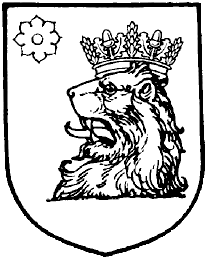Laibon
The Original Dark Ages Companion introduced the Laibon as a unified clan or bloodline. The Disciplines showed below are those given in that compendium.
| Bloodline Disciplines |
|---|
| Animalism |
| Fortitude |
| Obombwe |
Kindred of the Ebony Kingdom
The Laibon were, during the Dark Ages, viewed as a single bloodline by European vampires. The vampires of Africa nearly all referred to themselves as Laibon and certainly seemed distinct from regular clans.
In actuality, the term "Laibon" is the name African Kindred give to themselves. The Laibon which the European Kindred knew were actually just one of the many Legacies of African kindred.
Unlike the Asian Kuei-jin, Laibon are not a separate supernatural race, but the Laibon are in many ways quite different from "regular" kindred. They ascribe their origins to African gods and legends, unlike the Kindred's Noddist version. However, there are distinct similarities: the Laibon Cagn is strikingly similar to the Kindred Caine. Also, being resident in Africa (which the Laibon call the Ebony Kingdom) does not make you Laibon. Laibon have a distinctly different worldview forged by centuries of contact with the culture and supernatural of Africa. For example, although there are a few Ventrue in Africa, they are considered outsiders. However, the Mla Watu (the African Cappadocians), although feared for their power over the dead, are considered part of the Laibon because of their long history in Africa.
Contrary to the Kindred, no Laibon follows the Path of Humanity, nor any other Path of Enlightenment for that matter. Instead, Laibon forge their lives around two separate paths of Morality: Aye, which is their morality towards humankind, and Orun, which is their morality towards the supernatural. Depending on where they stand on these two scales, their appearance and supernatural power fluctuates. This fundamental difference forever separates the Laibon from the "typical" Cainite.
4th Generation
5th Generation
6th Generation
7th Generation
8th Generation
9th Generation
10th Generation
11th Generation
12th Generation
13th Generation
Those of Unknown Generation
